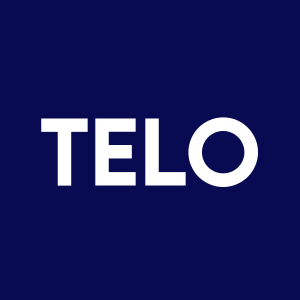Telomir Pharmaceuticals Announces New Data Showing That Telomir-1 Kills Aggressive Pancreatic Cancer Cells, One of the Deadliest Forms of Cancer
Rhea-AI Summary
Telomir Pharmaceuticals (NASDAQ:TELO) reported new preclinical laboratory data on October 14, 2025 showing that Telomir-1 produces a concentration-dependent reduction in survival and mitochondrial activity of human pancreatic cancer (PANC-1) cells.
Effects were partially reversed by iron re-addition, implying iron-dependent mechanisms plus additional metabolic or epigenetic pathways. Telomir plans expanded preclinical studies, in vivo validation, and continued Investigational New Drug (IND) preparation.
Positive
- Concentration-dependent reduction in PANC-1 cell survival
- Observed decrease in mitochondrial activity in pancreatic cells
- Partial mechanistic reversal by iron re-addition indicates target biology
- Plans to initiate in vivo validation studies toward IND preparation
Negative
- Results are preclinical in vitro data only; no in vivo or clinical proof yet
- Pancreatic cells showed lower sensitivity with iron restoration
- No quantitative efficacy metrics (e.g., % cell kill) disclosed
News Market Reaction
On the day this news was published, TELO gained 2.50%, reflecting a moderate positive market reaction. Argus tracked a peak move of +5.4% during that session. Our momentum scanner triggered 14 alerts that day, indicating notable trading interest and price volatility. This price movement added approximately $1M to the company's valuation, bringing the market cap to $52M at that time.
Data tracked by StockTitan Argus on the day of publication.
Findings complement previously announced results in triple-negative breast cancer (TNBC) and prostate cancer models, highlighting Telomir-1's consistent impact on cancer cell survival pathways.
MIAMI, FLORIDA / ACCESS Newswire / October 14, 2025 / Telomir Pharmaceuticals, Inc. (NASDAQ:TELO) ("Telomir" or the "Company"), a preclinical-stage biotechnology company developing therapies that target epigenetic drivers of cancer, aging, and age-related disease, today announced new laboratory findings demonstrating that Telomir-1 kills aggressive pancreatic cancer cells.
Study Summary
In laboratory studies using human pancreatic cancer (PANC-1) cells, Telomir-1 produced a concentration-dependent reduction in cancer cell survival and mitochondrial activity. These data suggest Telomir-1 influences cellular pathways related to energy metabolism and oxidative balance. The findings align with previously reported results in triple-negative breast and prostate cancer models, indicating that Telomir-1 may engage fundamental biological processes involved in cancer cell regulation.
Similar to the observation in TNBC, Telomir-1's effects in pancreatic-cancer cells were partially reversed by iron re-addition, suggesting that Telomir-1's activity in both TNBC and pancreatic cancer involves iron-dependent processes. The incomplete reversal supports the interpretation that additional metabolic or epigenetic mechanisms are also engaged.
Pancreatic-cancer cells are known for metabolic flexibility - the ability to use glucose, lipids, and amino acids to survive in low-oxygen, nutrient-poor environments. TNBC cells, by comparison, rely more heavily on iron-driven oxidative metabolism. The lower sensitivity of pancreatic cells to Telomir-1 in the presence of iron restoration may therefore reflect modulation of broader mitochondrial or energy-control systems, consistent with Telomir-1's function as an epigenetic modulator.
Mechanistic Context: Key Genes and Enzymes
Telomir-1 has previously been shown to influence several tumor suppressor genes and iron-dependent histone demethylases that are also relevant to pancreatic-cancer biology:
MASPIN (SERPINB5) - A "tumor suppressor shield" that regulates cell migration, invasion, and therapy response. Its loss through hypermethylation correlates with poor prognosis in pancreatic and prostate cancers. Telomir-1 has been observed to reduce MASPIN hypermethylation in preclinical models.
RASSF1A ("guardian gene") - A regulator of cell-cycle braking and apoptosis, frequently silenced by promoter methylation in pancreatic, breast, and lung cancers. Telomir-1 has previously decreased RASSF1A methylation in a dose-dependent manner.
STAT1 - A master coordinator of immune surveillance. When hypermethylated, tumors can evade immune detection. Telomir-1 has shown modulation of STAT1 methylation status in laboratory models, informing its potential relevance to immune-related control mechanisms.
KDM2B (FBXL10) and KDM6B (JMJD3) - Iron-dependent histone demethylases overexpressed in pancreatic and other aggressive cancers, driving transcriptional reprogramming, inflammation, and stem-like tumor behavior. Telomir-1 has demonstrated inhibitory activity against these enzymes.
Together, these previously reported effects provide biological context for Telomir-1's observed activity in pancreatic cancer models. By modulating genes and enzymes that coordinate DNA-methylation, oxidative stress, and cellular energy regulation, Telomir-1 may offer a unifying framework for understanding shared epigenetic and metabolic vulnerabilities across multiple tumor types.
Executive Commentary
Erez Aminov, Chief Executive Officer of Telomir Pharmaceuticals, stated:
"Our mission has always been to understand and address the root biological drivers of disease, not just their downstream symptoms. Pancreatic cancer is one of the hardest and deadliest malignancies known, and these data advance our understanding of how Telomir-1 interacts with the underlying mechanisms that sustain aggressive tumor biology. Each new finding brings us closer to our goal of translating deep science into meaningful innovation."
Dr. Angel, Chief Scientific Advisor of Telomir Pharmaceuticals, added:
"From a scientific standpoint, these results continue to refine our mechanistic understanding of Telomir-1. The differential behavior seen in pancreatic versus breast-cancer models helps us map how Telomir-1 influences iron-dependent and mitochondrial pathways in the context of epigenetic regulation. This type of multi-dimensional insight is precisely what's needed to design smarter, targeted approaches in preclinical oncology research."
Telomir intends to expand its preclinical research into additional cancer models, including leukemia, and to initiate in vivo validation studies as part of its ongoing Investigational New Drug (IND) preparation.
The Unmet Need in Pancreatic Cancer
Pancreatic cancer remains one of the most lethal malignancies, with an estimated 66,440 new U.S. cases and 51,750 deaths projected in 2024 (American Cancer Society). The five-year survival rate is approximately
Current standards of care - FOLFIRINOX, gemcitabine plus nab-paclitaxel and selected targeted or immunotherapy combinations - extend survival modestly but are limited by toxicity and the rapid emergence of resistance. The disease's dense stromal barrier, late detection, and ability to rewire its metabolism make it one of the most difficult cancers to treat. This has driven growing interest in therapies that address the epigenetic and metabolic mechanisms enabling tumor persistence.
Why Pancreatic Cancer Remains So Difficult to Treat-and How Telomir-1 Differs
Pancreatic cancer is one of the most complex and treatment-resistant malignancies, driven by a unique combination of biological and environmental challenges. The tumors develop a dense fibrotic stroma that limits drug penetration and oxygen flow, creating a microenvironment that supports survival rather than destruction. These cells also exhibit remarkable metabolic flexibility, switching among glucose, lipid, and amino acid utilization to sustain growth even when nutrients are scarce. This adaptability, together with profound epigenetic dysregulation, enables pancreatic tumors to resist chemotherapy and immune-based therapies alike.
Current front-line regimens-FOLFIRINOX or gemcitabine combined with nab-paclitaxel-attack rapidly dividing cells throughout the body. While these treatments can temporarily slow disease progression, they are often associated with severe fatigue, gastrointestinal distress, immune suppression, and peripheral neuropathy, and the benefit typically lasts only months before resistance emerges.
Telomir-1 represents a fundamentally different approach. Rather than relying on cytotoxic mechanisms that indiscriminately damage dividing cells, Telomir-1 is being studied for its ability to modulate epigenetic and metabolic regulators that underlie cancer cell survival. By influencing pathways that control DNA methylation, histone demethylation, mitochondrial activity, and iron balance, Telomir-1 may help reset the abnormal cellular programs that fuel aggressive cancers. This approach aims to reveal tumor vulnerabilities at their regulatory source - potentially offering a more targeted and mechanistically precise strategy for future development.
About Telomir Pharmaceuticals
Telomir Pharmaceuticals, Inc. (NASDAQ:TELO) is a preclinical-stage biotechnology company developing small-molecule therapies that target the root causes of cancer, aging, and age-related diseases by resetting dysregulated epigenetic programs. The Company's lead candidate, Telomir-1, is being advanced across oncology and longevity indications based on its differentiated ability to restore tumor suppressors, block undruggable enzymes, and reprogram gene control. For more information, visit www.telomirpharma.com.
Cautionary Note Regarding Forward-Looking Statements
This press release, statements of Telomir's management or advisors related thereto, and the statements contained in the news story linked in this release contain "forward-looking statements," which are statements other than historical facts made pursuant to the safe harbor provisions of Section 27A of the Securities Act of 1933, as amended, and Section 21E of the Securities Exchange Act of 1934, as amended. These risks and uncertainties include, but are not limited to, the potential use of the data from our studies, our ability to develop and commercialize Telomir-1 for specific indications, and the safety of Telomir-1.
Any forward-looking statements in this press release are based on Telomir's current expectations, estimates and projections only as of the date of this release. These and other risks concerning Telomir's programs and operations are described in additional detail in its Annual Report on Form 10-K for the fiscal year ended December 31, 2024, which are on file with the SEC and available at www.sec.gov. Telomir explicitly disclaims any obligation to update any forward-looking statements except to the extent required by law.
Contact Information
Helga Moya
info@telomirpharma.com
(786) 396-6723
SOURCE: Telomir Pharmaceuticals, Inc
View the original press release on ACCESS Newswire







